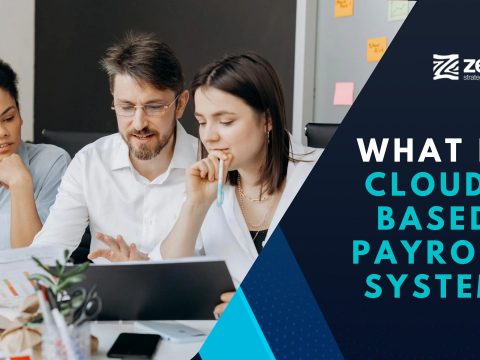
A growing business should have an efficient system that could address HR challenges like loss of talents, overspending, hiring and other tasks entailed with managing the workforce. Choosing the right Human Resource Information System (HRIS) can help you and your team to automate tasks including payroll and accounting.
How to choose an HRIS depends on your organization’s needs. An HRIS platform should aid your team centralize, control and plan processes for a better employee experience. Here are a few things you should consider when selecting the best HRIS.
What are the different types of HRIS to choose from?
In choosing an HRIS, it is important to understand that there are several options available. Knowing the uses of each is crucial to making the right decision. Each type of HRIS is made with particular features that may or may not benefit you.
1. Operational HRIS
The operational HRIS is intended to record and report employee information and other human resource data. Also referred to as the employee information system, the operational HRIS consists of information that makes up the employee profile. Examples of which include marital status, name, address, age, dependents, skills, work experience, and date of hire.
2. Strategic HRIS
The strategic HRIS is important in analysis and decision-making. HR professionals can use a strategic HRIS for workforce planning and goal setting. Growing organizations can also rely on this type of HRIS to manage data like market information and operational budgets.
3. Tactical HRIS
Tactical HRIS is essential for organizations that require help in managing resources and dealing with HR data such as government requirements, user information, and competitor data. Tactical HRIS can help in human resource processes like employee training, compensation, vacancies, and recruitment.
4. Comprehensive HRIS
The comprehensive HRIS is a streamlined database and platform that combines all the functions of tactical, strategic and operational HRIS. It serves as a one-stop shop for acquiring and storing employee information and other details including:
- Skills inventory
- Compensation and benefits
- HR files
- Training and development
- Open positions
- Job analysis and design
- Performance management
- Employee safety guidelines
5. Limited Function HRIS
Contrary to the comprehensive HRIS, the limited function HRIS performs only a single or limited purpose. The exact function or capacity of a limited function HRIS depends on your organization's current system.
How to choose an HRIS for your business?
How to choose an HRIS for your organization highly depends on what functions you'd like to perform or what HR challenges you’d wish to resolve. If you want a simple system that could just store employee information, then look for an operational HRIS. However, if you're looking at expanding your business and improving your people management strategies, then a comprehensive HRIS is best for you. Here are a few things you should do when deciding for the right HRIS software.
Evaluate your business needs
Ask yourself some questions that could help you pick the right system to automate your HR tasks. For instance, ask what repetitive employee management tasks you spend the most time accomplishing. How much data should you now organize, analyze and store?
Consult your team
Implementing an information system for your human resource needs will affect the entire organization including all the stakeholders. It is best to consult them for suggestions and evaluation of options. Coming up with a consensus of what you actually need can lead you to the right HRIS.
Set your budget
How much are you willing to spend on HR software that could ease out your employee management tasks? Your budget depends on the features of the system you'd want to be included so it helps to know what you want in an HRIS in coming up with the exact allotment.
Shop for options
Before making a final decision, speak with vendors and request a proposal and demo. Most vendors would ask for your required features before they can submit a proposal. A demo of the HRIS is useful in evaluating its ease of use and integration. Maximize the opportunity to ask questions and negotiate for additional inclusions. Also, know how after-sales services are conducted by the vendors.
What to look for in an HRIS?
Not all HRIS software may include the features you need for your organization. However, if you have a list of these features you’d want to have in your system, the vendors might find a way to have them included in your package. 
Mobility and accessibility
Your HRIS should be mobile and accessible especially when not all the members of your team are in front of their office computers at all times. Cloud-based HRIS is accessible through any type of device. Choose one that could be used anywhere while securing your company information.
Ease of use
Consider an HRIS that can be easily understood and used by all of your employees, especially those not well-versed in information technology. Ease of use will help you implement the system more efficiently and will allow everyone in the team to adopt and figure. A good HRIS can also help employees update their information without having to go through different channels for answers.
Customization
Generating a report from your HRIS is important and the ability to customize some fields will help you suit the system to your organization’s needs. Most HRIS software has templates available and you should ask if you can customize these to include the information you require.
Efficient onboarding and recruitment processing
Recruitment and onboarding are two HR processes that should be done efficiently. Your HRIS software should be easily integrated with your other HR systems like payroll, benefits, payments, and other particulars. This should also be applicable to all types of employees even freelancers and contractors.
Easy and reliable payroll
Payroll is a crucial aspect of human resource management. Your HRIS should automatically sync with your current HR system and should provide details on pay rates, direct deposits, wages, and ledgers.
Performance management
Employees can have a clear sense of direction knowing that their performance is regularly assessed. Choose an HRIS that will help your HR team conduct performance evaluations while allowing your employees to make self-appraisals.
Takeaway
Investing in an HRIS is a critical decision to make. It helps to know the benefits of having HR software that could help you manage all human resource tasks while ensuring accuracy and security. Choosing the right HRIS like Zebra can help build a strong and organized foundation to aid your business grow in the right direction.





